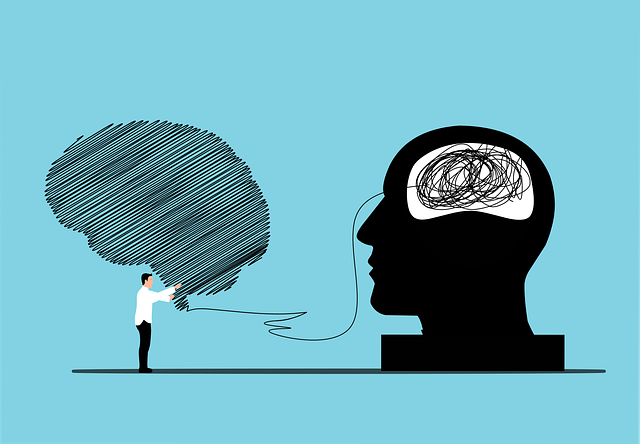Anxiety disorder treatment involves a comprehensive assessment by mental health professionals to accurately diagnose conditions like GAD or Social Anxiety Disorder. Tailored plans may include psychotherapy, medication, or both, focusing on addressing underlying causes and teaching coping strategies. Effective approaches include Cognitive Behavioral Therapy (CBT), exposure therapy, mindfulness-based therapies, and group therapy. Building resilience through self-care and support systems is crucial for managing and overcoming anxiety disorders, enhancing overall well-being and quality of life.
Anxiety disorders affect millions, yet comprehensive treatment options are often misunderstood. This guide delves into effective strategies for managing both panic disorder and generalised anxiety disorder (GAD). We explore key therapeutic approaches, such as Cognitive Behavioral Therapy (CBT), and complementary therapies that provide a holistic cure. By understanding symptoms, diagnosis, and building resilience through self-care, individuals can reclaim control over their lives. Discover proven methods for overcoming anxiety and fostering long-term mental wellness with these comprehensive anxiety disorder treatment programs.
- Understanding Anxiety Disorder: Symptoms and Diagnosis
- Cognitive Behavioral Therapy (CBT): A Core Approach
- Additional Therapies for Comprehensive Treatment
- Building Resilience: Self-Care and Support Strategies
Understanding Anxiety Disorder: Symptoms and Diagnosis

Anxiety disorder treatment starts with understanding the specific type of anxiety a person is experiencing. Comprehensive assessments by qualified mental health professionals are crucial to diagnosing conditions like Generalized Anxiety Disorder (GAD) or Social Anxiety Disorder, characterized by persistent and excessive worry or fear that interferes with daily life. Symptoms may include restlessness, irritability, fatigue, difficulty concentrating, and muscle tension. For panic disorder therapy, individuals often experience recurrent, unexpected panic attacks, a period of intense fear accompanied by physical symptoms like heart palpitations, sweating, or dizziness.
Effective diagnosis involves exploring the individual’s history, current circumstances, and specific triggers for anxiety. This process is vital to tailoring anxiety disorder treatment plans that may include psychotherapy, medication, or both. By addressing underlying causes and developing coping strategies, individuals can manage their symptoms and improve their overall quality of life.
Cognitive Behavioral Therapy (CBT): A Core Approach

Cognitive Behavioral Therapy (CBT) serves as a cornerstone in the comprehensive approach to treating both panic disorder and Generalized Anxiety Disorder (GAD). This evidence-based therapy focuses on identifying and challenging negative thought patterns and behaviors that contribute to anxiety symptoms. CBT empowers individuals to develop healthier coping mechanisms, manage stress more effectively, and change their reaction to anxious thoughts, ultimately leading to improved overall well-being.
Through a series of structured sessions, CBT helps patients recognize triggers, understand the connection between thoughts, feelings, and behaviors, and replace unhelpful cognitive distortions with realistic, positive alternatives. This process facilitates a significant reduction in anxiety symptoms, including panic attacks, for those diagnosed with panic disorder or social anxiety. By learning to manage their conditions through CBT, individuals can regain control over their lives, enhance their quality of life, and develop lasting coping strategies for GAD treatment.
Additional Therapies for Comprehensive Treatment

In addition to cognitive behavioral therapy (CBT), several other therapeutic approaches have proven effective in treating comprehensive anxiety disorder and panic disorder. These additional therapies offer a multifaceted approach, targeting different aspects of the conditions for a more holistic cure. Exposure therapy, for instance, gradually exposes individuals to anxiety-provoking situations, helping them learn coping strategies and reduce fear responses over time. This technique is particularly beneficial for those with phobias or severe social anxiety treatment needs.
Mindfulness-based therapies have also shown promise in GAD treatment. They teach individuals to focus on the present moment without judgment, reducing rumination and worry. Techniques like mindfulness meditation and deep breathing exercises empower patients with tools to manage their symptoms effectively. Furthermore, group therapy sessions facilitate open discussions and peer support, offering a sense of community and shared experiences, which can be especially impactful in anxiety therapy.
Building Resilience: Self-Care and Support Strategies

Building resilience is a crucial aspect of managing and overcoming anxiety disorders. Self-care plays a significant role in this process, as it equips individuals with tools to navigate triggers and symptoms effectively. Simple yet powerful strategies include regular exercise, mindfulness practices, and maintaining a balanced diet. These activities have been proven to reduce stress levels and improve overall well-being, forming a strong foundation for anxiety disorder treatment.
Support systems are equally vital. Connecting with understanding friends and family or joining support groups provides a safe space to share experiences and gain different perspectives. Such connections foster a sense of belonging and encourage the adoption of healthy coping mechanisms, contributing to improved mental health and making GAD treatment more accessible and successful.
Anxiety disorders are treatable, and a multi-faceted approach combining cognitive behavioral therapy, self-care strategies, and additional therapies offers the best chance for recovery. By understanding the symptoms and seeking diagnosis, individuals can embark on a journey towards managing their condition effectively. Through dedicated programs tailored to comprehensive anxiety disorder treatment, folks can learn to navigate life’s challenges with resilience, ensuring a brighter and more serene future. Remember that with the right support, it’s possible to overcome panic attacks and live a fulfilling life free from the confines of anxiety.

